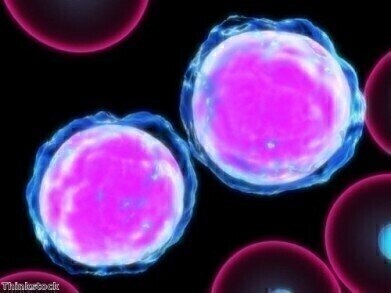-
 Cancer cells can turn the gene on in order to help it spread
Cancer cells can turn the gene on in order to help it spread
Bioanalytical
Human gene could help cancer spread
Aug 27 2013
A master gene in humans could be responsible, in part, for cancers of the breast and possibly other forms of the disease from spreading throughout the body. US scientists have discovered that the ATF3 gene could be involved in the processes that allow cancer to spread and affect other areas, as well as the part of the body where it originated.
ATF3 is an important master gene that helps cells adapt to to stress, however it has now been discovered that is potentially part of the process of a cancer metastising. In a study, published in the 'Journal of Clinical Investigation', scientists explore the causes of what the American Cancer Society calls the "single most significant challenge" to treating cancer.
It has already been ascertained that stress is risk factor for the development of cancer and that ATF3 is triggered when cells experience conditions that are stressful. The ATF3 allows cells to cells to continue to function in their normal way and to make normal cells self destruct if they have become permanently damaged.
It is also documented that the immune system begins by fighting off cancerous cells, but this stops being the case as the cancer cells are then able to manipulate the immune cells and make them stop functioning correctly. In this way the immune system is often responsible for allowing the cancer to grow.
However, within the new study, it was found that cancerous cells are able to activate ATF3 within any immune cells that are present at the site of a cancer. The ATF3 is then able to make the immune cells stop working correctly and helps the cancer cells to escape. This ultimately allows the cancer to spread to other areas of the body.
Tsonwin Hai, professor of molecular and cellular biochemistry at Ohio and senior author of the study, said: "If your body does not help cancer cells, they cannot spread as far. So really, the rest of the cells in the body help cancer cells to move, to set up shop at distant sites. And one of the unifying themes here is stress."
Digital Edition
Chromatography Today - Buyers' Guide 2022
October 2023
In This Edition Modern & Practical Applications - Accelerating ADC Development with Mass Spectrometry - Implementing High-Resolution Ion Mobility into Peptide Mapping Workflows Chromatogr...
View all digital editions
Events
Jan 20 2025 Amsterdam, Netherlands
Feb 03 2025 Dubai, UAE
Feb 05 2025 Guangzhou, China
Mar 01 2025 Boston, MA, USA
Mar 04 2025 Berlin, Germany











